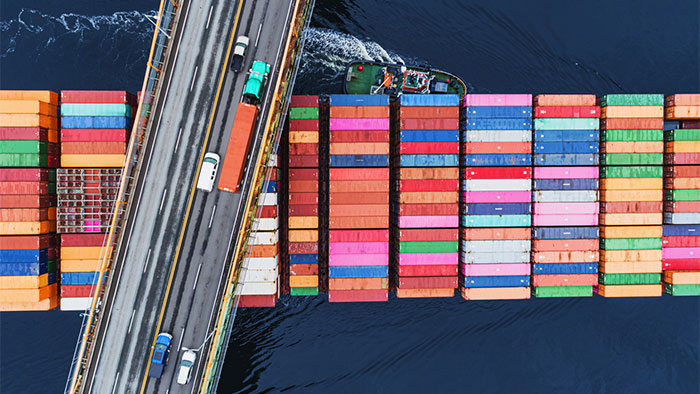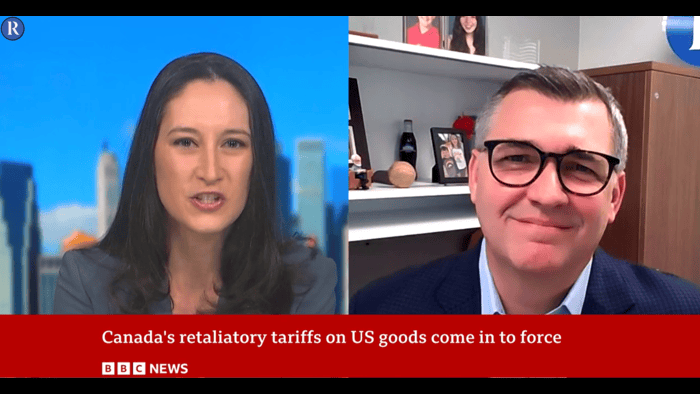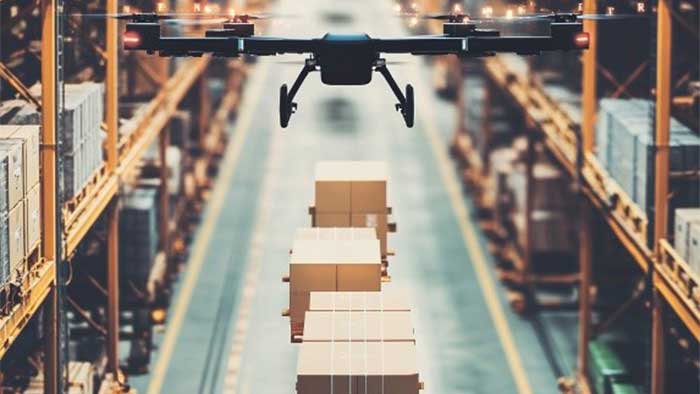Looking Ahead: Supply Chain Policy Outlook in 2025
Tracking the election impact on retail policy priorities
- By [ Sarah Gilmore ]
- 11/21/2024

Supply chain issues will remain front and center for the foreseeable future. Two major challenges looming are the potential East and Gulf Coast port labor strike on January 15, 2025, and the rise in cargo theft.
Election Impact
As we approach the January 15, 2025 deadline for a potential East and Gulf Coast port labor strike, ongoing debates around automation in port operations are expected to play a major role in negotiations. Under a Trump presidency, labor relations are likely to be more contentious, with a harder stance on strikes and a focus on limiting economic damage. President-elect Trump could leverage executive powers to prevent prolonged labor disruptions, while also pushing for solutions to streamline port operations and address automation concerns. Mr. Trump is also expected to focus on strengthening domestic manufacturing and addressing bottlenecks in the supply chain through deregulation and incentives for U.S.-based production. His administration could prioritize immediate economic recovery through traditional methods of infrastructure investment, while addressing port issues through a tougher stance on unions and potentially supporting private-sector solutions to supply chain risks.
President-elect Trump will prioritize traditional infrastructure projects, such as roads, bridges, and energy production, while moving away from climate-centered initiatives. A Trump administration will focus on deregulation to speed up infrastructure projects, enhance domestic energy, and promote private-sector involvement. He would likely aim to streamline infrastructure development by cutting regulatory red tape and focusing on economic recovery through infrastructure upgrades, with an emphasis on efficiency and cost reduction.
A Republican Congress and a Trump administration will continue to focus on reducing cargo theft and possibly establishing a Supply Chain Coordination Center and Task Force. The need for stronger protections against supply chain disruptions will likely foster bipartisan cooperation in Congress.
RILA Position
RILA is committed to advancing policies that enhance supply chain security, address labor shortages, and modernize transportation standards, all of which directly support retailers’ operational needs and consumer satisfaction. In the context of cargo theft, RILA advocates for comprehensive legislative measures to combat the escalating theft risks within supply chains, emphasizing collaboration among industry stakeholders and increased enforcement to protect retailers and logistics providers. Similarly, RILA supports legislative efforts to lower the commercial driving age to 18, helping alleviate the driver shortage and enhance supply chain efficiency, as well as efforts to update truck size and weight standards, improving shipping cost and safety outcomes.
RILA is a member of several coalitions to amplify these objectives, including the Supply Chain Theft Coalition, DRIVE Safe Coalition, and Americans for Modern Transportation.
Heading into the new year, RILA will continue to advocate for smart policy which helps keep our global supply chain open, resilient, and efficient. We will keep members informed of policy developments of consequence. For more information about RILA’s advocacy efforts around this issue, please reach out to RILA Director of Government Affairs Sarah Gilmore.
Want more election insights? Dive into our policy outlooks on more retail focus areas below.
• Payments
• Workforce
• Privacy & AI (coming soon)
• Tax
• Organized Retail Crime (coming soon)
Retail Supply Chain Conference 2025
- Feb 16 - Apr 19, 2025
- Orlando, FL

RILA's Retail Supply Chain Conference is the only event of its kind - gathering top executives from leading retailers to network and learn.
Go to EventTags
-
Public Policy
-
Supply Chain
-
Transportation and Infrastructure


